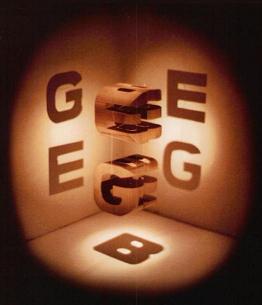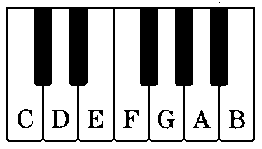Death of a Nominalist
"All our words from loose using have lost their edge." --Ernest Hemingway
(The Hemingway quotation is from the AP's "Today in History" on July 21, 2007; for the context, see Death in the Afternoon.)
Today seems as good a day as any for noting the death of an author previously discussed in Log24 on January 29, 2007, and January 31, 2007.
Joseph Goguen died on July 3, 2006. (I learned of his death only after the entries of January 2007 were written. They still hold.)
Goguen's death may be viewed in the context of the ongoing war between
the realism of Plato and the nominalism of the sophists. (See, for
instance, Log24 on August 10-15, 2004, and on July 3-5, 2007.)
Joseph A. Goguen, "Ontology, Society, and Ontotheology" (pdf):
"Before introducing algebraic semiotics and structural blending, it is good to be clear about
their philosophical orientation. The reason for taking special care with this is that, in Western culture, mathematical formalisms are often given a status beyond what they deserve.
For example, Euclid wrote, 'The laws of nature are but the mathematical thoughts of God.' Similarly, the 'situations' in the situation semantics of Barwise and Perry, which resemble
conceptual spaces (but are more sophisticated-- perhaps too sophisticated), are considered
to be actually existing, real entities [23], even though they may include what are normally
considered judgements.5 The classical semiotics of Charles Sanders Peirce [24] also tends towards a Platonist view of signs. The viewpoint of this paper is that
all formalisms are constructed in the course of some task, such as
scientific study or engineering design, for the
heuristic purpose of facilitating consideration of certain issues in that task. Under this view,
all theories are situated social entities, mathematical theories no less than others; of course,
this does not mean that they are not useful."
5 The “types” of situation theory are even further removed from concrete reality.
[23] Jon Barwise and John Perry. Situations and Attitudes. MIT (Bradford), 1983.
[24] Charles Sanders Peirce. Collected Papers. Harvard, 1965. In 6 volumes; see especially Volume 2: Elements of Logic.
From Log24 on the date of Goguen's death:
Requiem for a clown:
"At times, bullshit can only be
countered with superior bullshit."
-- Norman
Mailer
This same Mailer aphorism was quoted, along with an excerpt from the Goguen passage above, in Log24 this year on the date of Norman Mailer's birth. Also quoted on that date:
Sophia. Then these thoughts of Nature are also
thoughts of God.
Alfred. Undoubtedly so, but however valuable the
expression may be, I would rather that we should not make use of it till
we are convinced that our investigation leads to a view of Nature, which
is also the contemplation of God. We shall then feel justified by a
different and more perfect knowledge to call the thoughts of Nature those
of God....
Whether the above excerpt-- from Hans Christian Oersted's The Soul in Nature (1852)-- is superior to the similar remark of Goguen, the reader may decide.














Recent Comments